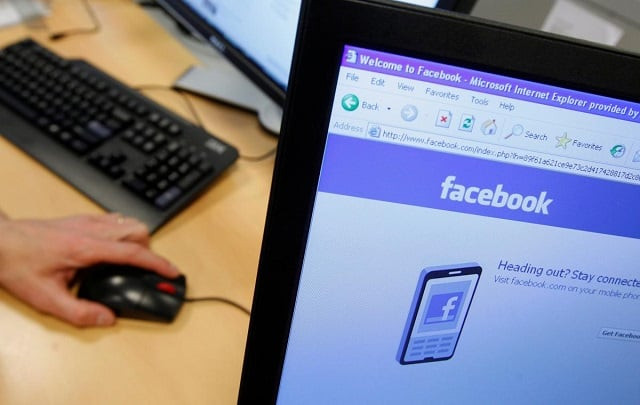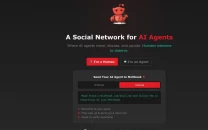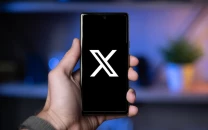Facebook blocks Iran-linked bid to sway US, British politics
The social network identified 82 pages, groups, and accounts that violated policy

A Facebook page is displayed on a computer screen in Brussels, Belgium, April 21, 2010.
PHOTO: REUTERS
The social network identified 82 pages, groups, and accounts that originated in Iran and violated policy on coordinated "inauthentic" behavior, Facebook head of cybersecurity policy Nathaniel Gleicher said.
Gleicher said there was overlap with accounts taken down earlier this year and linked to Iran state media, but the identity of the culprits had yet to be determined.
"It's often hard to know who is behind this type of activity," Gleicher said in a telephone briefing.
Facebook says no sign recent hack spread to other apps
Account owners tried to hide their identities by passing themselves off mostly as US citizens, and in a few cases as British citizens, according to Gleicher.
Posts on the accounts or pages, which included some hosted by Facebook-owned Instagram, focused mostly on "sowing discord" via strongly divisive issues rather than on particular candidates or campaigns.
Accounts and pages dated back several years, but most of the online activity took place in the past year, according to Facebook.
The campaign involved the purchase of two online ads, costing a total of $100 paid for in US and Canadian currencies, the first of which ran in June of 2016 and the second of which ran at the start of this year.
The purge involved 30 pages, 33 accounts and three groups at Facebook, as well as 16 accounts on Instagram.
Slightly more than a million accounts followed at least one of the pages, with the majority of the engagement taking place over the past year, according to Facebook.
Accounts involved in the influence campaign hosted seven real-world events, but Gleicher did not reveal details about them.
Sample posts shared by Facebook included inflammatory commentary about US President Donald Trump, British Prime Minister Theresa May and the controversy around freshly appointed US Supreme Court Justice Brett Kavanaugh.
The Atlantic Council said its digital forensics lab scrutinized pages and Instagram accounts shared with it by Facebook prior to the take-down.
"These accounts masqueraded primarily as American liberals, posting only small amounts of anti-Saudi and anti-Israeli content interspersed within large volumes of divisive political content such as race relations, police brutality, and US President Donald Trump," the council said in an online post.
"This evolution of tactics from previous more blatant pro-Iranian messaging suggests the operation had learned from earlier takedowns."
A Facebook page called "I Need Justice Now" had logged more than 13 million video views, while another called "No Racism No War" had garnered nearly a half-million followers, according to the council.
Facebook said it spotted the coordinated activity a week ago, and moved quickly to stop it given US midterms elections on November 6.
"We continue to get better at finding and taking down these bad actors, but we face smart, well-funded adversaries," Gleicher said.
Some of the accounts shut down were linked to a stealth influence campaign out of Iran shut down by Facebook in August, according to the leading social network.
Google at the time also blocked YouTube channels and other accounts over the misinformation campaign linked to Iran, on the heels of similar moves by Facebook and Twitter.
Facebook building a ‘war room’ to battle election meddling
Google said that working with the cybersecurity firm FireEye, it linked the accounts to the Islamic Republic of Iran Broadcasting as part of an effort dating to at least January 2017.
Major online social platforms have been under intense pressure to prevent being used to misinform and enrage voters by "bad actors" out to sway outcomes.
Gleicher said a new "war room" on the Facebook campus helped it tackle the latest Iran-linked influence campaign.
"Bringing teams together in the war room has helped us move much more quickly," Gleicher said.
The unit at Facebook's Menlo Park headquarters in California is the nerve center for the fight against misinformation and manipulation of the largest social network by foreign actors trying to influence elections in the United States and elsewhere.



















COMMENTS
Comments are moderated and generally will be posted if they are on-topic and not abusive.
For more information, please see our Comments FAQ